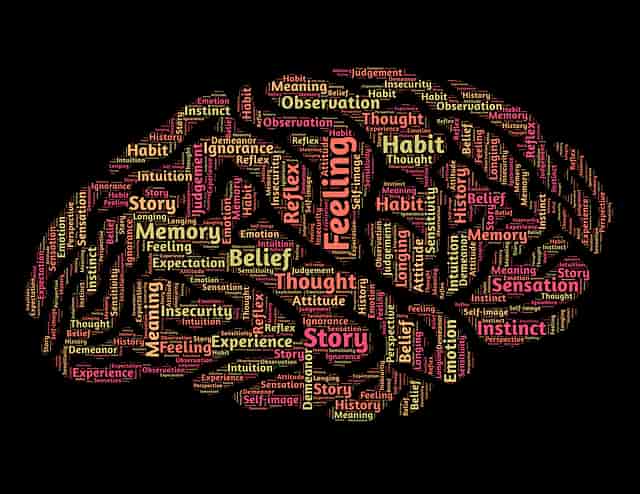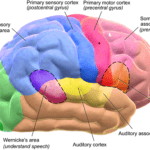What is Sports Psychology
What is Sports Psychology- It is the science that studies the behaviour of sportsperson. The word “sports” are derived from two words “DIS” and “PORTERE” meaning “carrying away from work”. Regarding sports, we point to such re-creative activities which are relaxing in nature and it is for sake of seeking pleasure only. Basically, sports are individual activities born out of a natural urge for movement. Sports are part and parcel of human as well as animal life.
Sports Psychology examines various aspects of sports activities and physical culture. It donates a sub-category of psychology focusing on the athlete. It is an applied field of psychology and new developmental science.
The term Psychology is related to Human Behaviour. It refers to how Behaviour a player is with another human being. Sports Psychology is the study of human also wears to related sports with one player to another, including Coach, Manager, Teacher and Parents. How it behaves is detected.
Any coach must have a thorough knowledge of psychology, this knowledge can improve the performance of the player, whenever a player wins or loses, sports training as well as psychological training also effects.
DEFINITION
ACCORDING TO MORGAN: – what is sports psychology -‘‘Sports psychology is the study of psychological foundation of physical activity’’
ACCORDING TO EUROPEAN SPORTS SCIENTIST: – “Sports psychology is the scientific discipline the object of which is to study the psychological manifestation of those who systematically practice competitive exercise”
HISTORY OF SPORTS PSYCHOLOGY
The world first laboratory-based on sports psychology was founded by Dr Carl Diem in 1920 at sporthochschule in berlin. Coleman Griffith is considered the father of sports psychology. It was through him that organized and directed the laboratory at the University of Illinois in 1925, in which much attention was given to psycho-motor, efficiency, learning and personality instability. Meanwhile, he also hired by the Chicago Cubs baseball team as his sports psychologist consultant. He also published the book IN the year of 1926 which based on sports psychology titled “THE PSYCHOLOGY OF COACHING”. But due to lack of funding issues his lab was closed in Dec 1932.
Firstly it gained scientific status in Europe in the 1920s and 1930s. The International Sports Psychology Society was established in 1960. In 1965, the first International Sports Psychology Congress was convened after the Rome Olympics.
DANI LANDERS DIVIDED INTO THREE STAGES ACCORDING TO ITS PROGRESS
1950 – In this stage, it was noted that the personality of the player is related to the performance of the game because the effect of his personal behaviour on the game was researched.
1966-76 – In the second phase, the emphasis was laid on adopting the principles prevailing at the time of psychology and examining them in the sports system.
From 1977 till now – This stop focuses on information and principles taken directly from games and sports, and concerned with developing psychological skill, techniques and strategy to bring enhancement to sports performance.
SPORTS PSYCHOLOGY TODAY
There is a major advancement in sports and games. Now a day that was not practised in the past, the word game was added to psychology. Game scientists believe that a person is a thinking animal and also a performing one. It should then attempt to analyze and experience various aspects of sports performance and the multidimensional nature of intellectual participation and the expression of intelligent judgment made on behalf of an athlete, which is a matter of sports from many branches of psychology goes into a general theory to study an athlete’s behaviour; we place the athlete as our centre of attention and look at which BRANCHES OF PSYCHOLOGY refer to the athlete’s behaviour for finals achievements Contributes to the understanding and modification of the ends.
Psychology is the science of mind or human nature as revealed in two aspects the inner which is the mind and the outer called action or behaviour, the experience that is considered to be the most useful type of intellectual behaviour. In which an athlete is primarily engaged in intellectual flexibility to choose the skill and skill in a suitable but pre-planned method desire.
SPORTS from many branches of psychology go into a general theory to study an athlete’s behaviour; we place the athlete as our centre of attention and look at which BRANCHES OF PSYCHOLOGY refer to the athlete’s behaviour for finals achievements Contributes to the understanding and modification of the ends.
IMPORTANCE OF SPORTS PSYCHOLOGY
- Motivation-: is a process by which an individual is inspired to do something. Motivation condition is essential for effective learning. A need is to be created within the individual. Motivation is a force by which even impossible tasks can be made possible Motivation in sports is of great importance, due to which the performance potential of a good player can be increased.
- IT is related to the behaviour of any player and the motivation of the player. With the knowledge of S. Psychology, the trainer and physical education teacher enable a player to perform at his best in competition.
- This is the study of how psychology influences sports, athletic performance, exercise, and physical activity. Some sports psychologists work with professional athletes and coaches to further motivate and improve the performance of athletes.
- IT used psychological knowledge and skill to ensure optimal performance and well-being of athletes. This specialized knowledge proves to be the guide to enhance skill and set procedure. These are then utilized to handle problems face by athlete and sportsman
READ MORE ABOUT- cognitive process in psychology
https://www.sportzyogi.com/cognitive-process-in-psychology/



